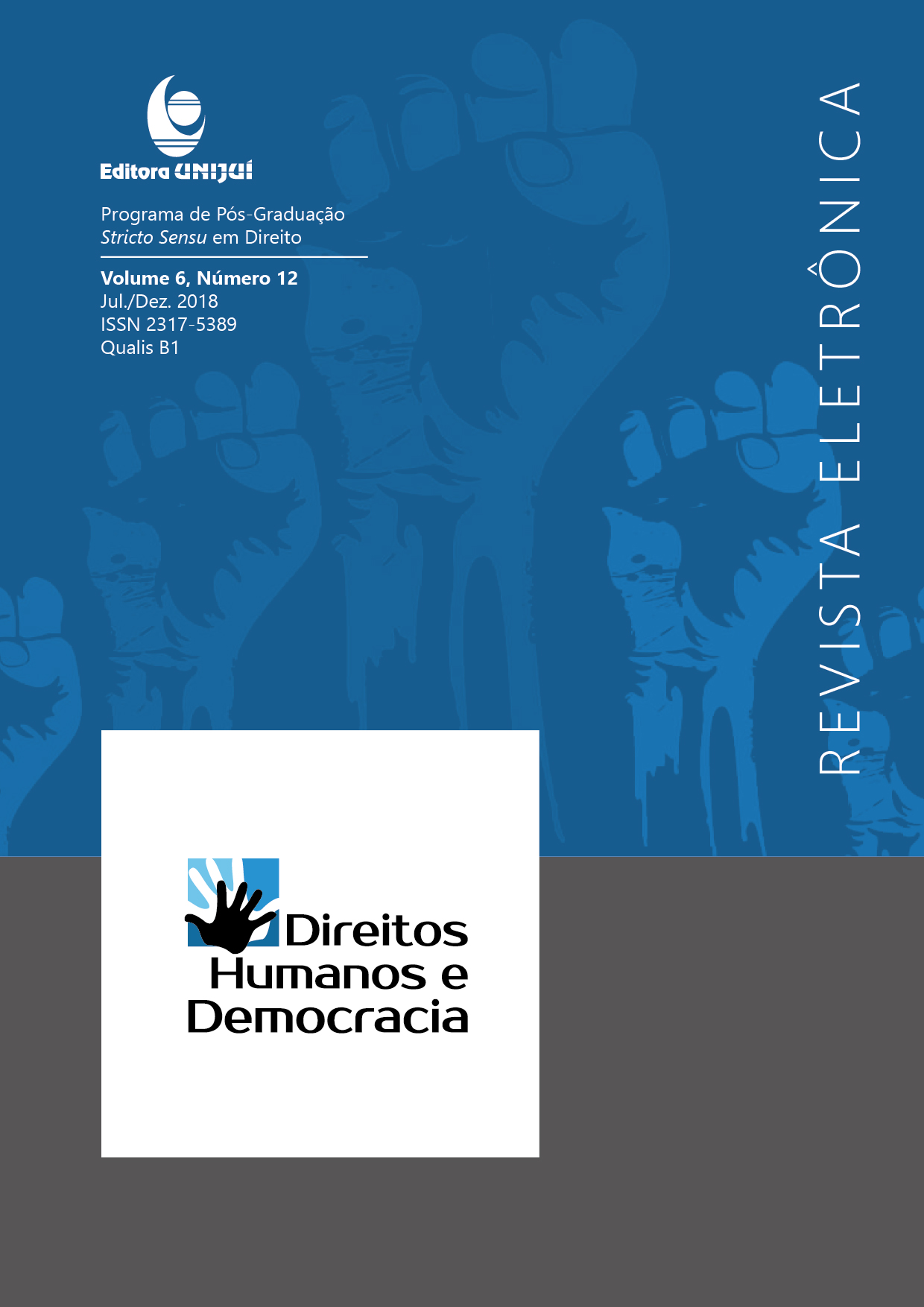OS EFEITOS ADVINDOS DA CONDENAÇÃO DO BRASIL NO CASO DAMIÃO XIMENES LOPES NA CORTE INTERAMERICANA DE DIREITOS HUMANOS POR VIOLAÇÃO AOS DIREITOS PREVISTOS NO PACTO DE SAN JOSÉ DA COSTA RICA
DOI:
https://doi.org/10.21527/2317-5389.2018.12.67-84Abstract
O presente artigo analisa quais as consequências advindas da sentença condenatória internacional proferida em desfavor do Brasil pela Corte Interamericana de Direitos Humanos no caso Damião Ximenes Lopes tais como, condenação pecuniária, elaboração de estrutura de apoio para pessoas com adoecimento mental e capacitação dos profissionais da área da saúde mental. O primeiro capítulo traz uma análise dos Direitos Humanos no pós II Guerra Mundial e trata do sistema interamericano de Direitos Humanos, dando ênfase ao Pacto de San José da Costa Rica (1969). O segundo capítulo versa sobre a posição adotada pelo Brasil enquanto signatário da Corte Interamericana de Direitos Humanos. O terceiro capítulo trata das particularidades do caso Damião Ximenes Lopes versus Brasil na Corte Interamericana de Direitos Humanos. Finalmente, o último capítulo discorre sobre as consequências advindas da condenação do Estado brasileiro no caso Damião Ximenes Lopes. Assim, o presente artigo objetiva descrever o papel da Corte Interamericana de Direitos Humanos na proteção dos Direitos Humanos, bem como apontar seu funcionamento, especificar as características do caso Damião Ximenes Lopes, descrevendo e analisando quais as consequências advindas da condenação do Brasil, nesse caso, no que diz respeito ao enfrentamento das questões relativas aos doentes mentais. Assim, por meio do método dialético e de revisão bibliográfica, o artigo busca responder ao seguinte questionamento: Quais os efeitos advindos da condenação do Brasil na Corte Interamericana de Direitos Humanos por violação a vários direitos do Pacto de San José da Costa Rica no caso Damião Ximenes Lopes?
Downloads
Published
How to Cite
Issue
Section
License
By publishing in the Revista Direitos Humanos e Democracia, authors agree to the following terms:
Articles are licensed under the Creative Commons Atribuição 4.0 Internacional (CC BY 4.0), which allows:
Share — copy and redistribute the material in any medium or format;
Adapt — remix, transform, and build upon the material for any purpose, including commercial use.
These permissions are irrevocable, provided the following terms are respected:
Attribution — authors must be properly credited, with a link to the license and indication of any modifications made;
No additional restrictions — no legal or technological measures may be applied that restrict the use permitted by the license.
Notices:
The license does not apply to elements in the public domain or covered by legal exceptions.
The license does not grant all rights required for specific uses (e.g., image rights, privacy, or moral rights).
The journal is not responsible for opinions expressed in the articles, which remain the sole responsibility of the authors. The Editor, with the support of the Editorial Committee, reserves the right to suggest or request modifications when necessary.
Only original scientific articles presenting research results of interest, not previously published or simultaneously submitted to another journal with the same purpose, will be accepted.
References to trademarks or specific products are intended solely for identification purposes and do not imply any promotional endorsement by the authors or the journal.
License Agreement: Authors retain copyright over their articles and grant the Revista Direitos Humanos e Democracia the right of first publication.













